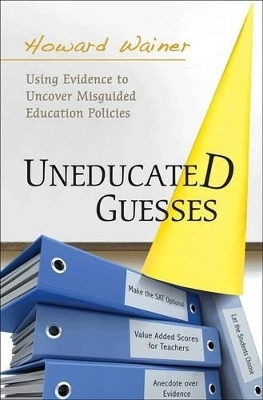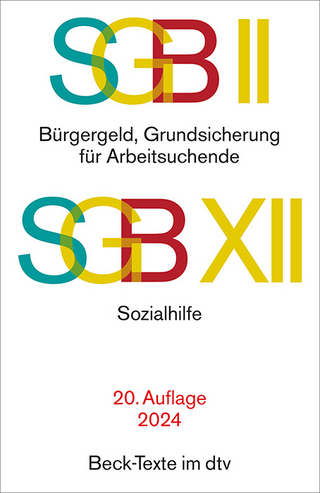
Uneducated Guesses
Princeton University Press (Verlag)
978-0-691-14928-8 (ISBN)
Uneducated Guesses challenges everything our policymakers thought they knew about education and education reform, from how to close the achievement gap in public schools to admission standards for top universities. In this explosive book, Howard Wainer uses statistical evidence to show why some of the most widely held beliefs in education today--and the policies that have resulted--are wrong. He shows why colleges that make the SAT optional for applicants end up with underperforming students and inflated national rankings, and why the push to substitute achievement tests for aptitude tests makes no sense. Wainer challenges the thinking behind the enormous rise of advanced placement courses in high schools, and demonstrates why assessing teachers based on how well their students perform on tests--a central pillar of recent education reforms--is woefully misguided. He explains why college rankings are often lacking in hard evidence, why essay questions on tests disadvantage women, why the most grievous errors in education testing are not made by testing organizations--and much more.
No one concerned about seeing our children achieve their full potential can afford to ignore this book. With forceful storytelling, wry insight, and a wealth of real-world examples, Uneducated Guesses exposes today's educational policies to the light of empirical evidence, and offers solutions for fairer and more viable future policies.
Howard Wainer is distinguished research scientist at the National Board of Medical Examiners and adjunct professor of statistics at the Wharton School of the University of Pennsylvania. For twenty-one years, he was principal research scientist at Educational Testing Service. His many books include "Picturing the Uncertain World: How to Understand, Communicate, and Control Uncertainty through Graphical Display" and "Graphic Discovery: A Trout in the Milk and Other Visual Adventures" (both Princeton).
Preface xi Introduction 1 Chapter 1: O n the Value of Entrance Exams: What Happens When the SAT Is Made Optional? 8 Chapter 2: O n Substituting Achievement Tests for Aptitude Tests in College Admissions 20 Chapter 3: O n Rigid Decision Rules for Scholarships 29 Chapter 4: The Aptitude-Achievement Connection: Using an Aptitude Test to Aid in Allocating Educational Resources 32 Chapter 5: C omparing the Incomparable: On the Importance of Big Assumptions and Scant Evidence 57 Chapter 6: O n Examinee Choice in Educational Testing 73 Chapter 7: What If Choice Is Part of the Test? 103 Chapter 8: A Little Ignorance Is a Dangerous Thing: How Statistics Rescued a Damsel in Distress 110 Chapter 9: A ssessing Teachers from Student Scores: On the Practicality of Value-Added Models 120 Chapter 10: S hopping for Colleges When What We Know Ain't 139 Chapter 11: O f CAT s and Claims: The First Step toward Wisdom 147 Epilogue 156 References 159 Index 165
| Erscheint lt. Verlag | 28.8.2011 |
|---|---|
| Zusatzinfo | 23 line illus. 17 tables. |
| Verlagsort | New Jersey |
| Sprache | englisch |
| Maße | 152 x 235 mm |
| Gewicht | 454 g |
| Themenwelt | Recht / Steuern ► Arbeits- / Sozialrecht ► Sozialrecht |
| Recht / Steuern ► EU / Internationales Recht | |
| Sozialwissenschaften ► Pädagogik ► Allgemeines / Lexika | |
| Sozialwissenschaften ► Pädagogik ► Bildungstheorie | |
| ISBN-10 | 0-691-14928-3 / 0691149283 |
| ISBN-13 | 978-0-691-14928-8 / 9780691149288 |
| Zustand | Neuware |
| Haben Sie eine Frage zum Produkt? |
aus dem Bereich


